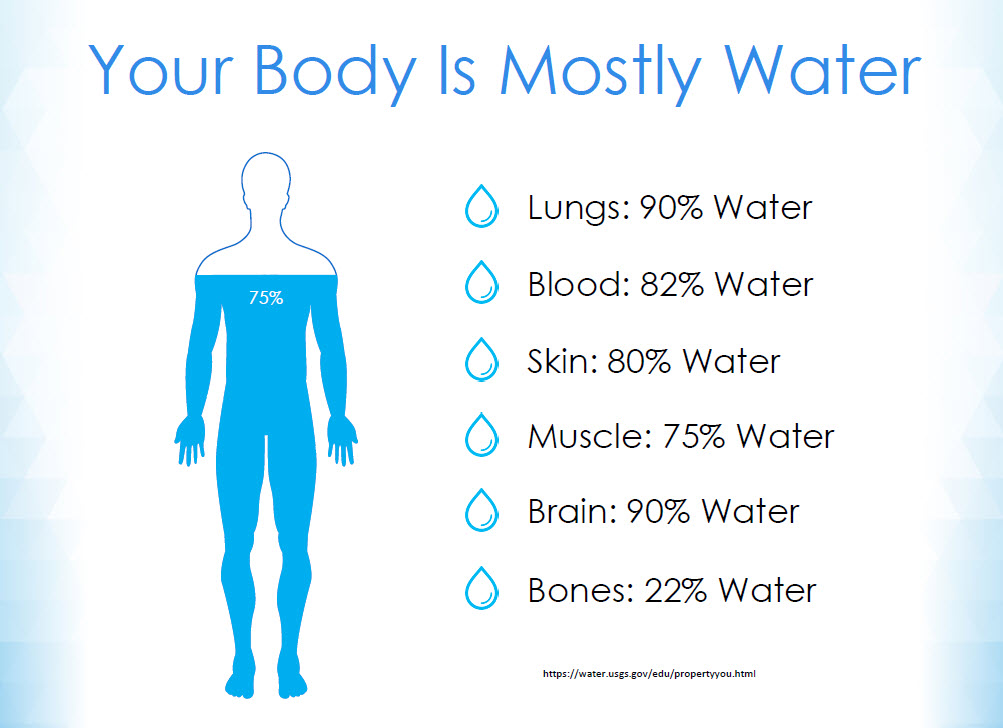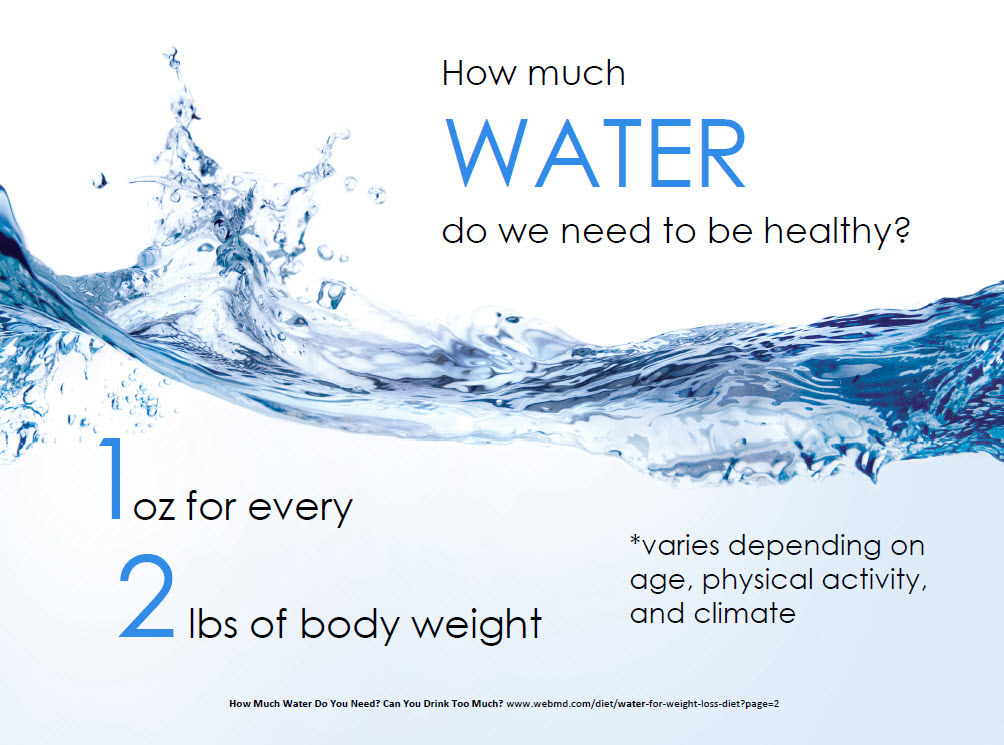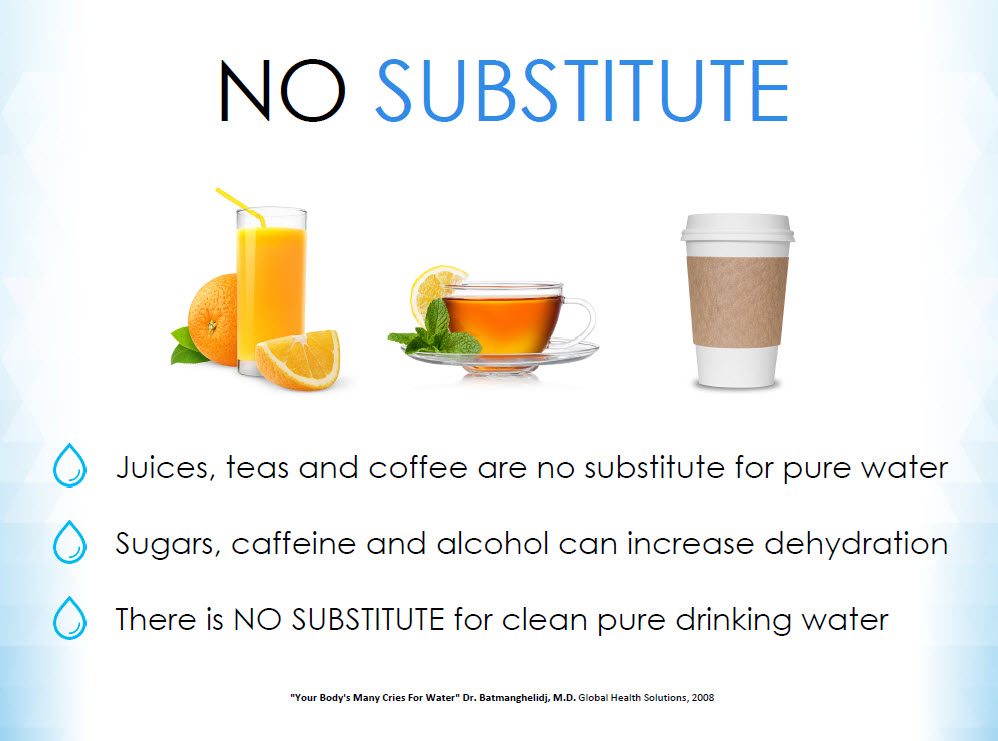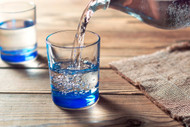How Much Water Do You Need?
Posted by Kenton Jones on Jun 8th 2020
“Drink eight glasses of water a day” has been the standard “common sense” hydration advice for decades. The standard of eight 8-oz glasses – 64 ounces of water in total – has been the de facto standard from doctors, teachers, and parents around the country. Recent years have seen debates about the merits of a single standard for daily hydration. For this “Hydration Solution” article, we’re going to examine How Much Water Do You Need?
As we mentioned in our article, “The Importance of Proper Hydration,” the average adult human body consists of between 65-75% water. Hydration is necessary to keep our blood, bones, muscles, organs, and all our tissues and cells full of the water they need to function. Water is lost every day through breathing, perspiring, urinating, and defecating. This is why water must be replenished through food and beverages. But how much water does the average person need to replenish this water and stay properly hydrated?
Differing Guidelines from Experts
According to the National Academies of Sciences, Engineering, and Medicine, the specific daily fluid intake is 15.5 cups (3.7 liters) for men, and 11.5 cups (2.7 liters) for women. These figures aren’t specific to cups of water – these figures encompass water, beverages, and food.
The Institute of Medicine recommends slightly different guidelines for daily hydration: 13 cups (3 liters) of fluid for men, and 9 cups (2 liters) for women daily.
The Office on Women’s Health recommends that pregnant women ingest 10 cups (2.4 liters) of fluid daily, and breastfeeding women consume 13 cups (3.1 liters) daily.
For children and teens, guidelines suggest 6 to 8 cups of water a day, as well as the consumption of fruits and vegetables that are high in water content (e.g., watermelon, strawberries, oranges, cucumbers, lettuce, etc.).
A More Specific Hydration Guideline
A more specific hydration guideline than any of these general recommendations is based on individual body weight – this is the guideline that Multipure generally uses. This guideline suggests your recommended daily intake of water is equal to half your body weight in ounces of water. A person who weighs 200 pounds should then ingest 100 ounces (12.5 cups) of water daily. A person who weighs 120 pounds should ingest 60 ounces (7.5 cups) of water daily.
Factors that Influence Hydration Requirements
While all of these hydration guidelines are good, it is important to consider additional factors when determining how much water should be consumed. These factors include:
- Exercise: Activities that make you perspire will cause you to lose additional body water. Therefore, you need to drink water before, during, and after exercise to replenish body water. Particularly strenuous exercise may require you to also replenish the electrolytes (salts and other minerals) necessary for proper body functionality. A good guideline is to drink 1/2 cup to 1 cup of water every 15 minutes of exercise.
- Environment: Hot or humid weather can cause additional perspiration, even without strenuous activity. High altitudes can cause additional fluid loss through dryer air and more rapid breathing.
- Illness: Fever, vomiting, diarrhea, or other symptoms of illness cause additional fluid loss. Doctors almost always recommend drinking plenty of liquids when you are suffering from an illness.
- Pregnancy or breastfeeding: Pregnant and breastfeeding women require additional fluids to stay hydrated, as they are supporting not just themselves but also their infant.
What About Hydration from Other Sources?
Water intake recommendations generally include all sources of hydration – not just drinking water, but also other beverages and foods. The issue then becomes what else you are consuming with these other sources of hydration.
- Juices, sodas, and smoothies can hydrate, but also come with a very high amount of sugar and calories.
- Coffee and tea can hydrate, but caffeine is a diuretic; this means that you will also lose water as caffeine will cause you to urinate more often.
- Sports drinks can hydrate, and will also provide carbohydrates and electrolytes that can help during exercise or excessive perspiration. The downside is that sports drinks also generally contain a high amount of sugar and calories.
- Energy drinks contain very high amounts of sugar, caffeine, and other additives that may cause you to urinate more often. As such, they are not a good source of hydration.
- Alcoholic drinks contain water, but drinking alcohol will actually dehydrate you, as your body will urinate a great deal more due to alcohol consumption.
How Do I Know If I’m Hydrated?
There are two simple ways to tell if you are hydrated:
- You rarely feel thirsty.
- Your urine is colorless or light yellow.
What Should I Do If I’m Not Hydrated?
The best way to stay hydrated is to drink clean, pure drinking water in small to moderate amounts, several times a day. Aside from that, there are some very simple guidelines to maintain proper hydration:
- When you’re thirsty, drink some water.
- If you feel hungry between meals, drink some water (because thirst is often mistaken as hunger by the brain).
- During high heat or exercise, drink water to compensate for perspiration.
- When you’re not thirsty anymore, stop.
Ultimately, despite all the guidelines and recommendations giving absolute amounts of water you should drink each day – including by us here at Multipure, the best determiner of how much water you need to drink is your body. Your body will tell you that it needs hydration, by making you feel hungry or thirsty. Everything else is a combination of common-sense advice (e.g., drink when you sweat) and recommendations for better health (e.g., pregnant women need to drink more, sick people need to drink more).
While you will get some amounts of hydration from many other foods and drinks, there really is no substitute for clean, healthy drinking water, free of additives, chemicals, or anything that might negatively affect your body. And the best way to get that clean, healthy drinking water is through a Multipure drinking water system. Taste the Difference of Multipure, and stay hydrated.

